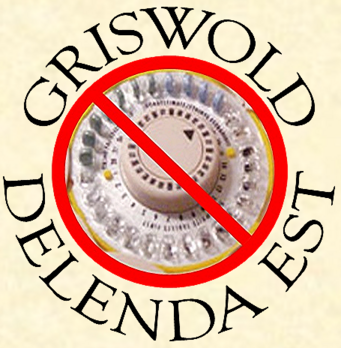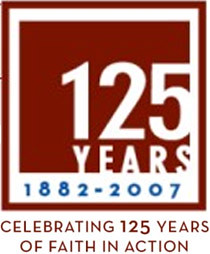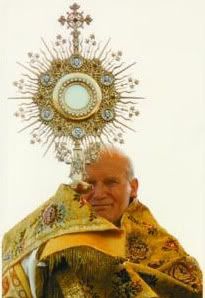Ancient Words and the Presbyterians
After this song, things got really weird, with a recitation (well, a reading from the Jumbotron) of the Nicene Creed. They've done the Apostles' Creed there before (deleting the line about Jesus descending into Hell and changing [C/c]atholic to universal), but this is the first time I can remember hearing the Nicene Creed there. They used an unfamiliar translation--unfortunately, I can't remember exactly where their version differed from the one I know (that being the one we say during Mass), but there were 5 or 6 times when folks around me looked at me funny for saying something they weren't saying.Holy words, long preserved
for our walk in this world.
They resound with God's own heart;
Oh let the ancient words impart.
Words of life, words of hope,
give us strength; help us cope.
In this world where'er we roam,
ancient words will guide us home.
Holy words, long preserved
for our walk in this world.
They resound with God's own heart;
Oh let the ancient words impart.
We have come with open hearts;
Oh let the ancient words impart;
Oh let the ancient words impart.
Two things stuck out to me. First, they said "I believe" instead of "we believe." I thought this was pretty telling of the lack of real community. I know tons of people at CPC, but I don't feel connected (and didn't, even when I went there every week and didn't think I'd ever become Catholic). I can go to Mass at a church I've never been inside before and feel a bond with the rest of the congregation. I also noticed that Presbyterians have trouble pronouncing the word "apostolic." I may or may not have giggled a bit.
The whole thing served to underscore for me how tenuous a position the protestant must hold. "Well, we really like this old stuff, but it's not in the Bible, as such. Oh well. We'll use it, even though last week we had the "Sola Scriptura" banner up. Maybe nobody will remember." Lucky for us, Jesus left us a Church against which the gates of Hell--and self-contradiction--shall not prevail.
File Under: Catholic_Stuff








12 Comments:
At my Presbyterian church, we ALWAYS say "catholic" and the line about Jesus descending into Hell. I have long found those who change that word or mark it with an asterisk tedious and dull. Also, we say the Apostles' Creed nearly every week (occasionally the Nicene), so we pretty well have it memorized. This before our weekly celebration of the Lord's Supper.
Although their use of the word "we" instead of "I" might be indicative of a "lack of community," it should be noted that that is actually the proper translation. The Latin is "Credo," which means "I believe." The use of "We believe" is a result of the (extremely poor) translation that ICEL came up with after the liturgical reforms- they thought it was more meaningful and "community building," despite the obvious inaccuracy of such a translation. Interestingly, as there is now a debate over returning to a purer and less colloquial translation of the English liturgy, one of the things being debated is the changing of the Creed's phrase from We Believe to I believe...
Evan- Is your church PC-USA? One of the biggest differences between PC-USA and PCA is that the PC-USA is a lot more Lutheran/Episcopalian leaning, as far as liturgy and such. CPC is PCA, which is far more hesitant to admit to having a liturgy, from what I've seen.
AI- Shhh. I understand full well the difference between "credo" and "credimus." However, I don't think it's such a terrible thing to substitute credimus here. Not 100% faithful to the original, perhaps, but it doesn't really change the meaning, except in the way I already discussed. There are several things in the Creed(s) that I only believe because we believe them.
I may revisit this. Right now, class.
Sorry, I didn't mean to seem presumptuous, but it's not exactly common knowledge, so I figured I'd throw it out there. I didn't know myself until about two years ago when I actually read the Latin (which I hadn't seen before). I would assume most ordinary American Catholics woulnd't know- but then, I suppose I should have known that you all aren't exactly ordinary Catholics... :-)
On a different note, I meant to post this earlier, but I was puzzled by their exclusion of Jesus' descent into Hell. Is this a point of theological contention? I had no idea it was controversial.
Being an ordinary Catholic has nothing to do with this--I just happened to take 3 years of Latin (from the Presbyterians, even!). :-P
I am puzzled by it, too. The speculation from most folks I asked about it was that it's not something most people understand, and saying it when they recite the Creed would be too confusing. Kind of like how they just edit it to "universal" instead of assuming that folks have decent vocabularies.
For what it's worth, you may be as presumptuous as you like (though I didn't think you were being so here). You're my favorite (after Paul, of course). I only shushed you because you were making me attempt to think coherently when I'd only been awake about 30 minutes.
from jbut
Could not the 'ancient words' in the song refer to the very sola scriptura in which presbys believe? Why does that song sound funny to you coming from such a community? Presbys like ancient words too.
I nearly laughed out loud the first time they put up that creed with the changed words. I looked around wildly, "HEL-LO!! What's going on here?!!" That was just downright painful. Ugh.
I would like to tell you some of what I learned from/thought of John Paul II's book, but I'll have to write it later. I meant to give you some reaction when we were at Pancake Pantry, but I forgot.
Jess, every time we sing that song, we follow it with a Creed (this is the 3rd time I can remember). That sort of indicates to me that they aren't referring only to Scripture.
It sounds funny to me coming from such a community because one of the reasons I left that community is because I came to recognize it as not properly in touch with those ancient words. Where did we get the Creed and the Canon? Oh, right, the Catholic Church.
I'd love to hear your take on the book. I've not read it, myself.
Hi,
I'd prefer "I" over "we" for one basic reason. I've had it explained to me by some very "sophisticated" Catholics that they can say the Creed without giving it any internal assent.
"You see, Tom, when I say, 'we' I'm actually referring to what the Church as a whole believes without experiencing any conflict with my internal faith system."
So please, bring back "I believe" so there's no wiggle room for such people.
Oh, I'd be careful about praying (even the Creed) in a Protestant meeting building. It could give the impression you are worshipping as they worship.
I'd not thought about the "argument" (if one can call something so illogical an argument) that "we" might not actually be a first person pronoun. I'll try my darndest to pray for these folks, just as soon as my brain stops convulsing.
Your point about participation in the protestant worship service is one I've struggled with. I'm currently working on exactly how to stop going with them and not have my grandmother stop speaking to me. All prayers and/or suggestions are appreciated.
Layla -
The church I attend (temporarily) in Seattle and my "home" church in NOLA are both PCA. There's a substantial liturgical revival going on in the PCA, particularly outside the Southern suburban churches which comprise the bulk of PCA membership. City churches, West Coast churches, and new church plants are finding that liturgy is important and edifying (hallelujah!). (See www.liturgyfellowship.org)
Der Tomissar - Saying the Creed is indeed worship, but it should be no more worship than not saying the Creed. To refer to a church service as a time of worship (which it is) bears the implication that other times are not times of worship, and this is inconsistent with Reformation theology.
Well, good for the PCA. Baby steps toward The Church. ;) I had no idea, CPC being both Southern and suburban.
While every aspect of our lives is, indeed, supposed to be worship of God (and, when it fails to be that, it is worship of something else--self, mammon, &c.), Der Tomissar is 100% correct in admonishing me not to give the appearance of endorsing what goes on in a protestant church. There are several reasons that Catholics before Vatican II were not permitted to enter non-Catholic houses of worship (or whatever label you'd rather give them). I find myself now longing for such a prohibition, which would make it lots easier to tell my grandmother I wouldn't go with them any more.
Calling for consistency with "Reformation theology" isn't exactly very compelling 'round these parts, myself in the process of becoming Unreformed, and most of our readers having either completed that process or having never been reformed in the first place. :)
Hey, I understand where you're coming from. When I attend a RCC service, I don't partake in the Eucharist because I am not a part of the RCC. However, to say the Creed is to affirm that "The Church knows that she is joined in many ways to the baptized who are honored by the name of Christian, but do not profess the Catholic faith in its entirety or have not preserved unity or communion under the successor of Peter. Those who believe in Christ and have been properly baptized are put in a certain, although imperfect, communion with the Catholic Church." I do not think you should have any concern about affirming Christian belief with the Presbyterians.
Post a Comment
<< Home